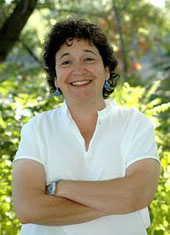Faculty Research Symposium:Quality, Quantity, and Cost in the Treatment of HIV/AIDS in Africa
Join Sydney Rosen, research associate professor of international health at SPH, and Warren Kaplan , assistant professor of international health at SPH, as they present their research on the “Quality, Quantity, and Cost in the Treatment of HIV/AIDS in Africa” at the BUSPH Faculty Research Symposium on Wednesday, February 24 at noon in the BUSM Instructional Building, room L-112.
All members of the BUSPH and BU community are invited to attend the Faculty Research Symposium series and learn about the diverse work their colleagues are doing across the areas of public health.

Part 1. Presented by Sydney Rosen
Can Resource-Constrained Countries Afford Better First-Line Antiretroviral Therapy Regimens for HIV/AIDS? Evidence from the Center for Global Health and Development’s Work in Zambia
Most resource-constrained countries use stavudine (d4T) in first-line antiretroviral therapy (ARV) regimens for HIV/AIDS despite its high burden of toxicities because it is inexpensive and effective. In 2007, Zambia became the first country to replace d4T with tenofovir in first-line ART. Tenofovir is much more expensive than d4T, and the change in treatment guidelines was expected to increase the cost of treatment in Zambia substantially. This talk will present results from the CGHD’s ongoing study of the costs and outcomes of ART in Zambia both before and after the switch to tenofovir; discuss the implications of the change for the overall cost and success of Zambia’s treatment program; and consider the tradeoff between quality and quantity in the response to HIV/AIDS.

Part 2. Presented by Warren Kaplan
The UNITAID Patent Pool Initiative to Improve Access to Tenofovir-based ARV Therapy
UNITAID, the intergovernmental organization based in the World Health Organization, is creating a “patent pool” for antiretroviral therapies. The specific purpose of this structure, which collectively manages ARV patent rights, is to increase access to fixed-dose combinations. Tenofovir-based fixed dose combinations are particularly important in this regard. The “pool” intends to license rights to produce these ARVs to generic manufacturers, with the intention of inducing competition and lowering price. This scheme is voluntary. Some questions raised in this talk will be: Why would a pharmaceutical company join this “pool”? How can the public health community know if it is working or not?
Presenters: Sydney Rosen and Warren Kaplan
Date: Wednesday, February 24, 2010
Time: 12:00 p.m. – 1:00 p.m.
Location: BUSM Instructional Building, room L-112